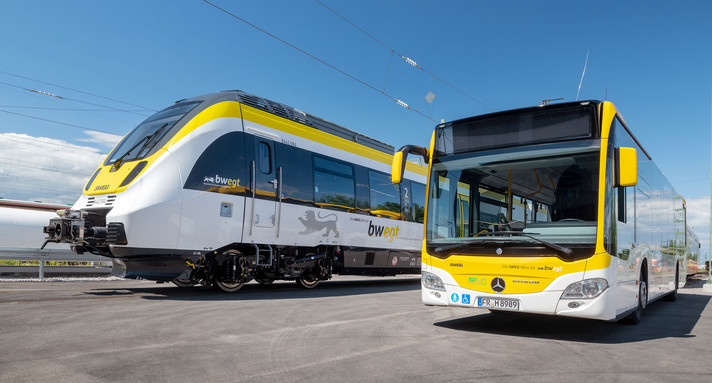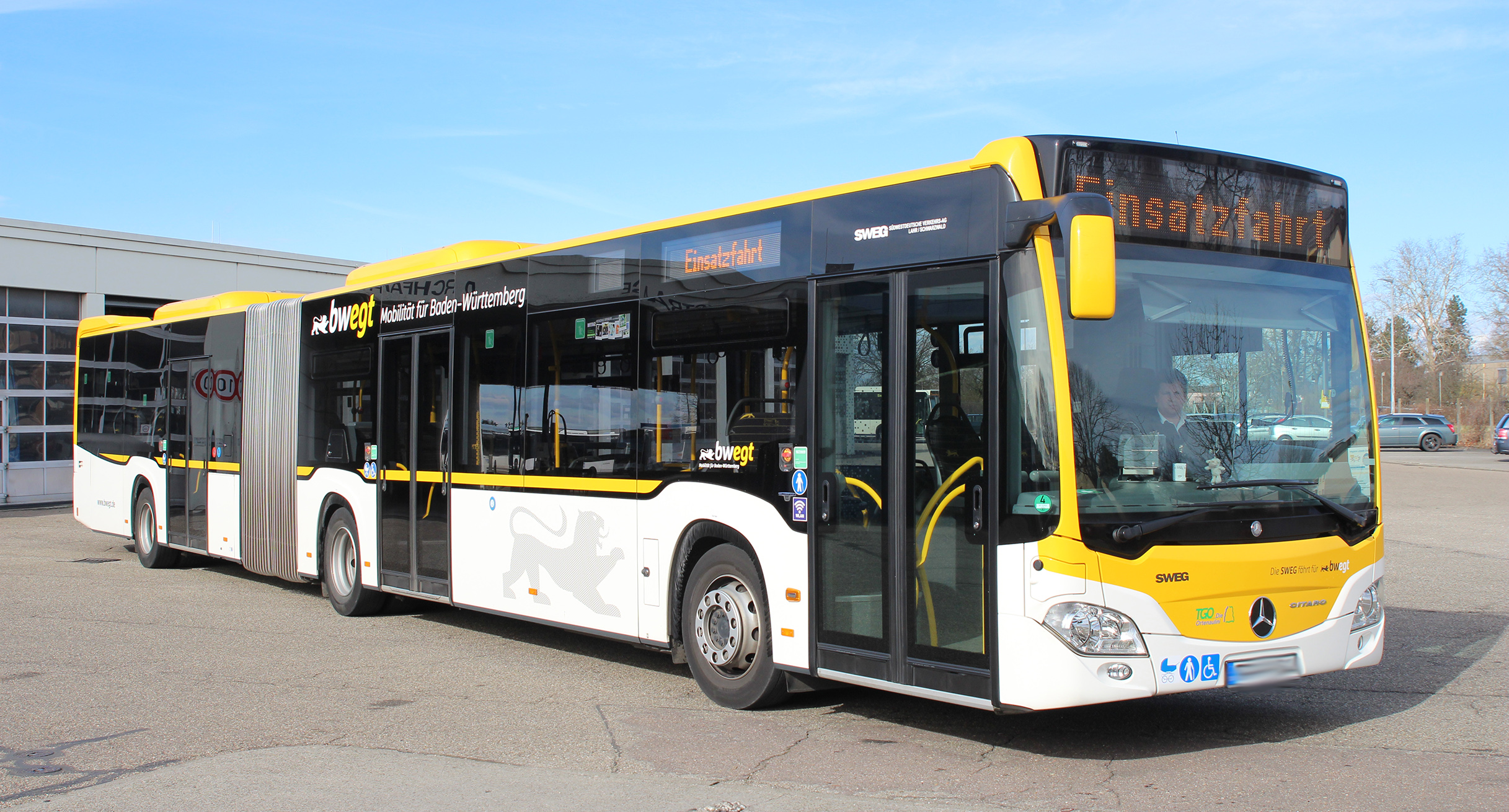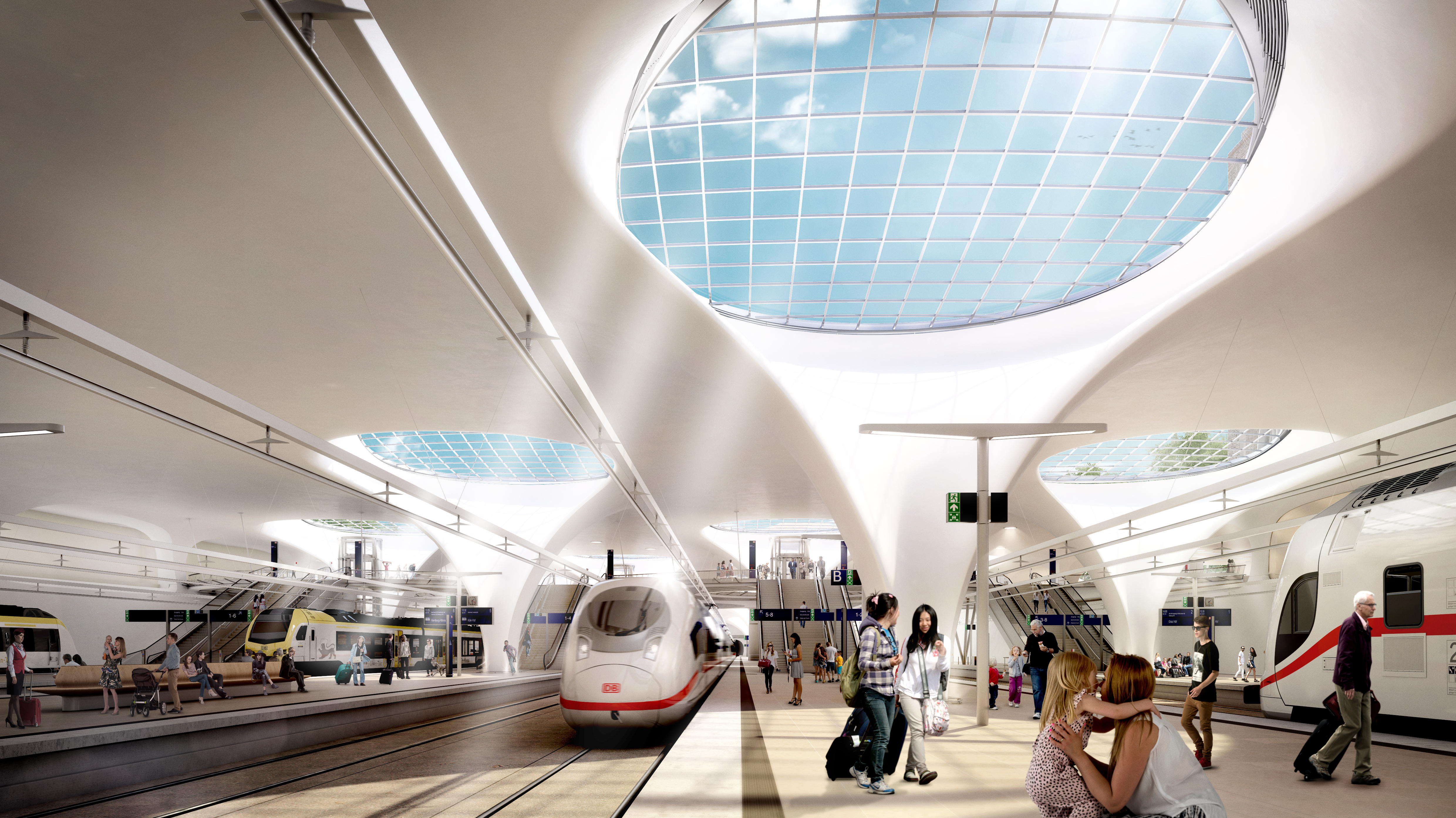The Ministry of Transport is an advocate of an improved bus, tram and train system. The goal is to double the number of passengers by 2030. Metropolitan and peripheral areas offer huge potential. Additionally, the Ministry of Transport would like to develop local public transport further in order to create a comprehensive and reliable system, especially in rural areas and with the help of innovative approaches such as dial-a-bus services.
When it comes to bus transportation, there are some important projects in Baden-Württemberg. Some of the aspects are the introduction of a metropolis express system, the establishment of express bus services between central points and transport hubs, the guarantee of uniform standards for bus traffic as shuttles to the city railway and the coordination of regional traffic management.
Regional bus services close gaps in the rail-bound public transport system by transporting passengers on at least an hourly basis and thus serving as a connection between the bus and train services. Regional buses are fast and high-quality vehicles. Baden-Württemberg is currently funding eleven regional bus services, out of which half are based in rural areas.
An increase in the proportion of local traffic on the rails is a central component of sustainable mobility and a success story. The goal: At least one train per hour in the entire state, from early in the morning until late at night.
New trains, new uniform fares
Up until 2016, DB Regio had operated 2/3 of all train service. The end of the so-called major transport contract also marks the dawn of a new age for railway transport in Baden-Württemberg. In the future, service from Abellio and GoAhead as well as further railway companies will join the DB Regio trains. The state’s own company Südwestdeutsche Eisenbahngesellschaft (SWEG) and the German subsidiary of the Swiss federal railway will continue to operate in the state.
The Ministry of Transport has launched a new umbrella brand bwegt together with a marketing campaign to accompany this change process. The focus lies here firmly on quality, reliability and safety in the local railway transport system.
Effective April 1, 2019, the fare zones and sector limits will be restructured, so that the number of fare zones in Stuttgart and the four administrative districts in the network will be reduced from 52 to only 5 ring zones. In the interests of air pollution control, the state and partners in the Transport and Tariff Authority of Stuttgart will be subsidizing the new fare with € 42 million over a period of six years.
Put to the test: New, climate-friendly trains
Baden-Württemberg has initiated a Europe-wide call for tenders for carbon-neutral vehicles with alternative drive technology for the “Ortenau” network. Alongside the procurement of vehicles, the call for tenders also includes the maintenance and repair of vehicles.
The Ministry of Transport continues to promote the supply of electricity from exclusively renewable energy sources for the start of the designated operations at the end of 2022. Possible drive technologies include vehicles based on hydrogen/fuel cell technology and overhead line/battery powered vehicles from multiple manufacturers. Exactly for this reason, there is no specific technology stipulated in the call for tenders.
The Stuttgart-Ulm railway project is one of Baden-Württemberg’s largest infrastructure projects and is omnipresent in the greater Stuttgart area, in the Alb region and in the Ulm city area, and not least due to the progressing construction work. The construction project consists of two components: The alignment of the Stuttgart rail hub (Stuttgart 21) with the construction of the new, underground main station and the connection of the airport and the trade fair grounds to the regional and long-distance traffic networks; and the construction of the high-speed Wendlingen-Ulm line, which will also be connected to the new rail hub.
For some time now, it has been known that the Stuttgart 21 project will be considerably more expensive than originally planned. The Deutsche Bahn AG (DB) supervisory board agreed to an increase in the financing framework from €4.5 billion to €6.5 billion back in March 2013. Following a further examination of the construction schedule and cost situation, which has been presented at the end of 2017, DB now calculates the total price at €7.7 billion. At the same time, the construction period has been extended and the potential completion date has been pushed back. DB currently anticipates Stuttgart 21 will only be completed by the end of 2025 and without the initial routing “Gäubahn” via the Stuttgart airport. This route will be completed one to two years later. However, the newly constructed Wendlingen-Ulm line is hoped to be completed by 2022.



